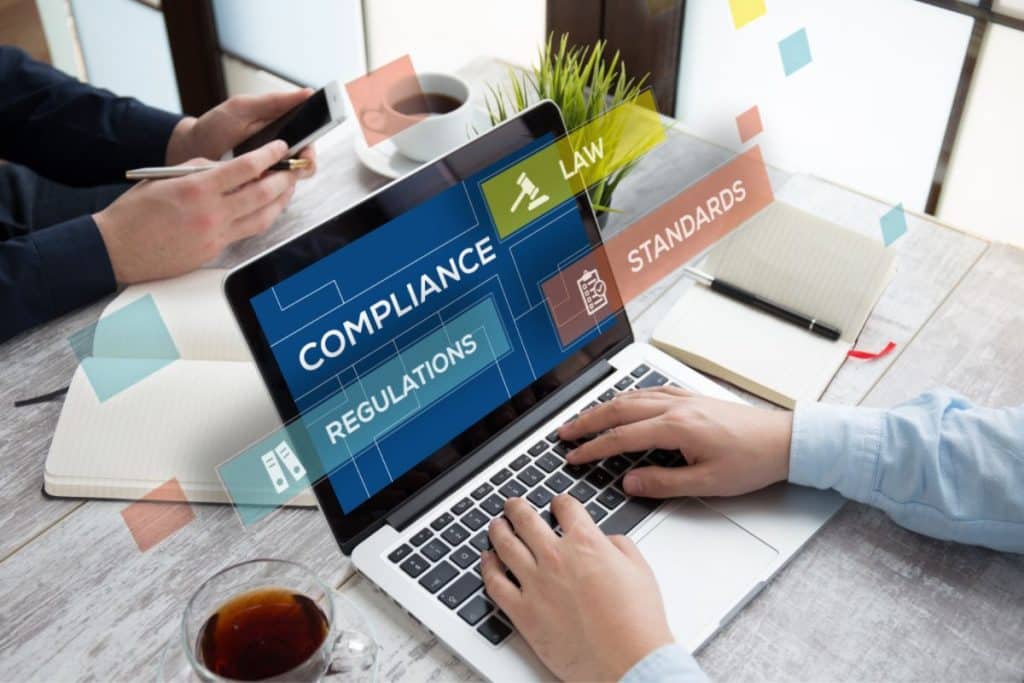Over the years, you’ve probably seen many high-profile corruption and accounting scandals come over the news. Now, there has been an increase in various financial laws and regulations that businesses are required to comply with. These regulations provide incentives for businesses to minimize errors by implementing processes to collect and report information.
The most significant of these regulations is the Sarbanes-Oxley Act of 2002, or SOX, which is a regulation that intends to improve financial reporting. This act places some requirements on the internal controls regarding financial reporting. It applies to firms registered with the Securities and Exchange Commission, or SEC, including many manufacturing companies.
Today, there are many solid incentives for manufacturing companies to utilize advanced technologies to open the door for more reliable, efficient, and effective control of financial reporting practices. This is where Enterprise Resource Planning (ERP) software comes in.
How Can ERP Help with Regulatory Compliance?
Information Technology (IT) managers must make sure that the chosen ERP solution deals with regulatory requirements regarding internal control over financial reporting. Because they may face severe penalties for not complying with the regulations, many manufacturers are turning to a cloud-based ERP solution to minimize their weaknesses and ensure they comply with the regulatory requirements.
Below, we’ll take a closer look at the role of cloud-based ERPs as they relate to regulatory compliance.
What is a Cloud-Based ERP?
Before we can explore how a cloud-based ERP solution can be beneficial for your company, let’s first examine what it is.
Legacy ERP is software loaded onto your enterprise data center that manages your business processes. It allows your business to use a collection of cohesive applications to manage your business and automate many of your back-office functions. Typically, an ERP solution will combine all areas of your business, including manufacturing, HR, sales, product planning, marketing, product development, and accounting/financial reporting. All of these areas combine into a single database and user interface.
By contrast, today’s ERP systems run on a cloud platform instead of an on-site enterprise data center. By operating in the cloud, accessibility increases, allowing the information to be shared/applied in real-time through your entire organization—and it’s much easier to stay on top of controls and processes that meet regulatory requirements.
To comply with SOX, the various systems in your business must be cohesive, which means that ERP is a natural solution to help ensure you can remain compliant.
What is Internal Control?
Internal control over your financial reporting combines conventional accounting processes, and IT controls. These IT controls consist of the systems, infrastructure, and techniques used to capture, record, and process accounting/financial information. ERP is part of this blend.
The Public Company Accounting Oversight Board, or PCAOB, categorizes issues with internal control as:
- Material weakness
- Significant deficiency
- Control deficiency
According to SOX, public companies must disclose the most serious category: material weakness. In most cases, these material weaknesses relate to the processes and practices involving accounting, security, senior management, reporting, technology, and training.
In the manufacturing industry, some of the most common IT-related control weaknesses include the following:
- Too much/not enough access controls to systems/databases
- Slow to review transactions to find irregular journal entries
- Unsatisfactory review of audits
- Not closing old accounts and opening new ones
- Insufficient separation/defining of duties over applications
Typically, high-level weaknesses are not as common. These are usually more critical than the other weaknesses because they are systemic and hard to audit. Additionally, the high-level weaknesses are generally related to the company’s failing.
As you can see, most of the weaknesses are related to accounting and finance processes. At this point, it’s more a matter of scale/scope. A simple procedural blunder in accounting could be repeated in various places, penetrating the entire business. If you don’t have a solution, such as an ERP, tracking down and correcting these errors can be a significant task.
How Can ERP Software Improve the Effectiveness of Internal Control?
Businesses can use ERP software to build functional internal controls over their reporting processes throughout the organization. Doing so will ensure that they comply with SOX and other standards in place both now and in the future.
When it comes to record-keeping, SOX has put some strict requirements into place. Auditors must get down to the details of all of the transactions, which can be hard to maintain at scale. However, with ERP, a business can enter the data in one place while it’s applied across the entire system.
With ERP, validation steps ensure data integrity, reconcilability, and consistency. You can access the information you need at the moment that you need it through the user interface, customized to fit your needs without calling IT for help.
In addition, ERP can help businesses comply with SOX by decreasing manual steps where mistakes often happen and automating processes for operations and reporting. ERP is critical for placing strategies that simplify the collection, analysis, and reporting of compliance information required by SOX.
ERP allows business leaders to access all of the information they need in one central location. Meaning they can make fast, efficient, informed decisions regarding the company. Plus, since the data is real-time, it allows quick and more flexible decision-making.
Finally, since an ERP offers functionality for auditing accounting processes, it is suited for inquiries related to concerns regarding control and the use of IT to manage compliance.
As you can see, an ERP system can help your business achieve and maintain regulatory compliance. Contact us today to learn why Goldfinch ERP is the best solution for your organization.



